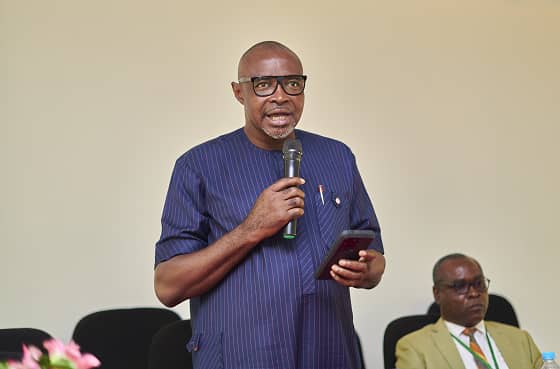Agriculture like every other sector of the economy of a nation is evolving.
Edo State as a major player in the agricultural space in Nigeria needs to be at the forefront of this agricultural revolution; hence, the Edo State Government through the Ministry of Agriculture and Food Security in collaboration with GIZ and other stakeholders have examined and developed strategies to reinvigorate the agricultural sector in the State to meet global standards and to diversify the State’s economy through these agricultural policies that will make the State an agricultural hub in the country.
In this wise, the Permanent Secretary, Ministry of Agriculture and Food Security, Peter Aikhuomobhogbe, during a review and finalization of Edo State Agricultural Policy and its implementation plan at the Agricultural Development Program (ADP) in Benin City, spoke on the readiness of the State Government and its desire for every local government area to have agricultural policies based on their peculiar comparative advantage.
He stressed that these policies will be of great relief to famers and will deepen farmer-farmer relationship, farmer-herder relationship and farmer-government relationship.
The Permanent Secretary added that the State Government had taken the first step to achieve these policies by approving the Farmers’ Censor Program to identify and register farmers in the State.
The Commissioner for Agriculture and Food Security, Stephen Idehenre added that the State Government has taken the first step to achieve these policies by approving the Geo Mapping of farm settlements and the Farmers Census programme to identify and register farmers in the State, build synergy with research institutions in the state, establishing agro-processing centres, agro-markets and the recently signed anti-grazing bill that will encourage ranching.
Various stakeholders encouraged the State Government to employ the use of security architecture in checking the menace scaring agricultural investors, especially the farmer-herder clash that is prevalent in the country.
They proposed policies including the Homestead Farming Policy, which will be encouraged by sensitizing the public on the need to use every available land or space in their compounds for any form of agricultural practices.
Other policies include the Policy of Edolites in the Diaspora, to encourage Edo indigenes overseas to invest in agriculture in the State; Quality Assurance and Control Policy, to ensure high standards and help regulate method of cultivation and use of farm chemicals; Cooperative and Association Policy that will serve as a base for funding for farmers; Policy of Cluster Farming and policies to check post-harvest losses such as building of silos, subsidizing farm machineries, processing centres, specific grass cultivation policy, policy of monopoly and many more.
The Permanent Secretary, Peter Aikhuomobhogbe, lauded the efforts of the stakeholders for their meaningful contributions and assured them that the State Government will enforce these policies to the letter that will project the State internationally and to make Edo State an agro-hub.


